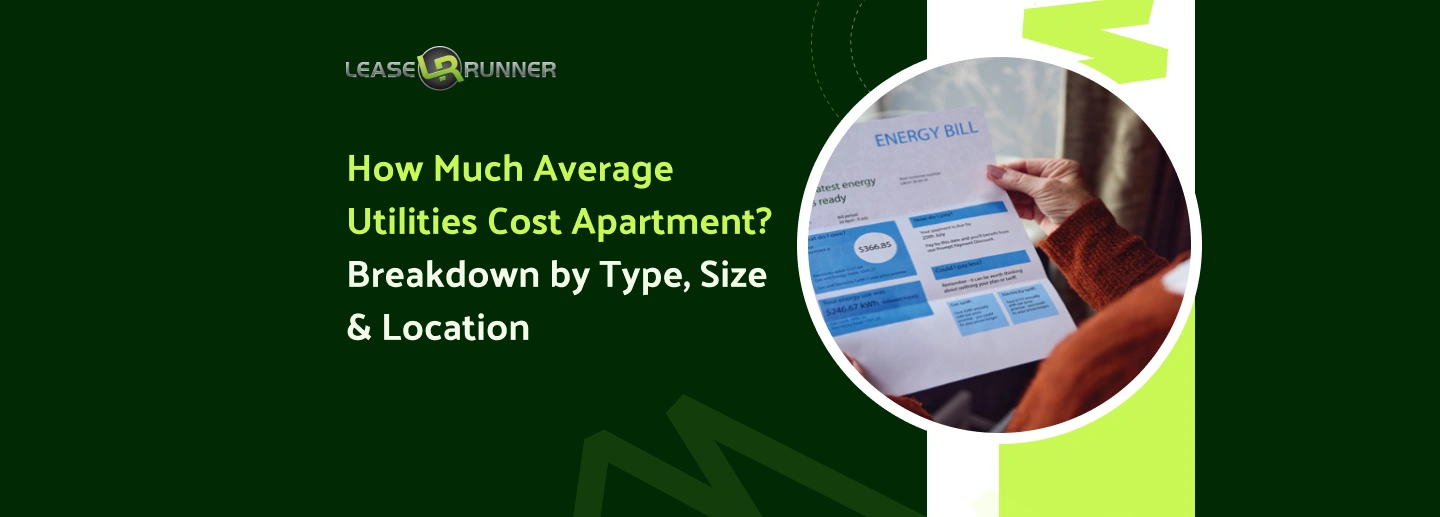
Who pays the broker's fee when renting? It’s a question that pops up a lot, but the answer isn’t always clear. Sometimes the landlord pays, sometimes the tenant does, and sometimes it’s a bit of both. This 2025 guide breaks it down in an easy way, so everyone involved can understand what to expect!
Who Are Rental Brokers? What Do They Typically Do?
Rental brokers, sometimes called real estate agents or leasing agents, act as middlemen between landlords and tenants to help find and secure rental properties.
The fee paid for their service is often referred to as a broker fee or brokerage fee (both terms are used interchangeably in the rental market). These fees compensate brokers for the time and effort they invest in marketing properties, showing units, screening applicants, and facilitating lease agreements.

What do brokers do, typically? Brokers’ work can involve many tasks that make renting smoother, but the exact services often differ depending on which side of the rental deal they represent.
Landlord-side services
When working for landlords, brokers usually help list and promote rental properties to attract qualified tenants. Their services are:
- Taking professional photos
- Creating appealing listings
- Conducting open houses or private showings
- Managing inquiries
Brokers also screen potential tenants by checking credit history, employment, and rental references to ensure landlords find reliable renters. This vetting process helps to maintain steady cash flow by minimizing the risk of late payments or vacancies.
Additionally, brokers may assist with drafting or reviewing lease agreements and coordinating move-in dates. Hiring a broker can save time and reduce the hassle of managing the rental process themselves, especially when they don’t live nearby or lack experience in leasing.
Tenant-side services
On the tenant’s side, brokers help individuals or families find suitable rental homes based on their preferences, budget, and desired location. They provide access to available listings that may not be widely advertised and arrange property viewings. Brokers can guide tenants through the application process, explain lease terms, and sometimes negotiate lease conditions on their behalf.
In some areas, brokers specialize in tenant representation and focus entirely on helping renters find homes, which is a distinct service from landlord representation.
What is a Broker Fee When Renting?

So, what exactly is the broker's fee meaning in apartment and other types of rentals? It’s the payment brokers receive for their work connecting landlords and tenants and helping seal the deal. Broker fee is the way brokers get paid for the time, effort, and know-how they put in.
The amount and responsibility for paying the broker fee can vary significantly by location, rental market conditions, and the type of broker service provided. In some cities, the tenant typically pays the fee; in others, the landlord covers it, or it may be split between both parties.
Common Ways Brokers Charge Renters or Landlords
Broker fees are structured in a few common ways, and the timing of payment can also differ. These factors influence whether tenants or landlords are responsible for the fee and how the cost is calculated.
By Fee Types (Flat Fees & Percentage-Based)
Broker fees generally fall into two main categories:
- Flat Fees: This is a fixed amount charged regardless of the rent price. It provides clarity on costs upfront and is common in smaller markets or for simpler transactions.
- Percentage-Based Fees: Many brokers charge a percentage of the annual or monthly rent, often ranging from 8% to 15% of the yearly rent. For example, if the monthly rent is $2,000, and the broker charges 12% of the annual rent, the fee would be $2,880 (12% of $24,000).
Some landlords or tenants prefer flat fees for predictability, while others accept percentage fees as fair compensation aligned with the rental value.
By Payment Timing (Pre-Lease & Post-Lease)
The timing of when broker fees are paid can vary:
- Pre-Lease Fees: Some brokers require payment upfront before the lease is signed. This approach ensures the broker is compensated early, but it may create hesitation for tenants or landlords who want to confirm terms first.
- Post-Lease Fees: More commonly, broker fees are paid after the lease is signed, often when the rental transaction is finalized. This timing aligns payment with the successful completion of the rental deal and provides reassurance to all parties involved.
In some cases, payment schedules can be mixed or negotiated.
Who Pays the Broker Fee When Renting?

One of the biggest questions around broker fees is: who actually pays?
Usually, who covers the broker fee depends largely on who hired the broker in the first place. When a landlord brings in a broker to help rent out their property, the landlord often ends up paying the fee. On the other hand, if a tenant hires a broker to find a place, the tenant typically covers the cost.
However, agreements can vary widely. It often comes down to local market customs and the specific rental deal. Being clear upfront about this helps avoid awkward surprises later.
Does the Broker Fee Depend on the Rental Type?
Yes! The type of rental often influences who pays the broker fee and how much it might be.
Apartment Rentals (Especially in Cities Like NYC, Boston)
In big cities like New York and Boston, apartment rentals usually come with a broker fee, and it’s most often the tenant who pays. These markets are competitive, and brokers play a key role in helping renters find apartments fast.
That said, no-fee apartments have become more common, too. In these cases, the landlord covers the broker fee, which is built into the rent or simply waived to attract tenants. So while tenants often pay the broker fee in city apartments, it’s not a hard rule. It relies on how the listing is set up.
Single-Family Homes & Condos
For single-family homes and condos, brokers' fees tend to be more flexible. When landlords take the lead and hire brokers to list their properties, they usually pay the fee.
But if a tenant independently hires a broker to find a single-family home or condo, then the tenant is more likely to cover the fee. This happens especially in markets where direct landlord listings are less common or harder to find.
Subleases
Subleases are a bit of a wild card. Typically, brokers aren’t involved in subleasing arrangements, so there’s usually no broker fee at all.
If a broker does get involved in helping with a sublease, the tenant is usually the one who pays. But in most situations, sublease fees (if any) are negotiated directly between the original tenant and the subtenant, with no broker in the picture.
Co-Living or Shared Housing
Co-living spaces and shared housing often work differently when it comes to fees. Instead of a separate broker fee, the cost is usually bundled into move-in fees or administrative charges.
Because these setups often have management companies handling multiple tenants, broker fees don’t always come into play. When they do, they’re typically included in other costs, so tenants and landlords don’t usually see a separate broker fee line.
Broker Fee Rules by State (2025 Overview)
Now, let’s take a closer look at how it works in some of the biggest markets in 2025, along with any standout legal details to know.
In New York City (NYC)
Who pays the broker's fee when renting an NYC apartment?
In New York City, broker fees have long been a major part of renting. Historically, tenants almost always paid the broker's fee, even when the landlord hired the broker to market the unit. This led to high move-in costs, often equal to one month’s rent or more, just for the fee.
However, recent legal changes in New York have shifted the rules. In many cases, if the landlord is the one hiring the broker to market the apartment, the landlord is required to pay the broker's fee. This aims to protect tenants from being forced to cover fees for a service they didn’t request.
But there are exceptions. If a tenant independently hires a broker to help find an apartment, the tenant still pays that fee. It’s important to be aware of these new rules to avoid legal issues. Charging tenants for a broker they didn’t hire can violate state guidance and lead to fines or disputes. Many landlords now advertise “no-fee” apartments to stay compliant while marketing their units competitively.
In California
In California, there’s no statewide law specifically dictating who pays the broker's fee for rentals. Instead, it’s typically determined by local custom and the agreement between the parties.
- In many competitive markets (like San Francisco or Los Angeles), landlords often pay the broker fee, especially when they want to fill vacancies quickly.
- Tenants might pay if they hire a broker directly to help with a search, especially for harder-to-find rentals.
California also requires brokers to be licensed and to disclose fees clearly.
In Texas
Texas leaves broker fees up to the agreement between the landlord and the tenant.
- It’s common for landlords to pay the fee when they want help marketing the property and screening tenants.
- Tenants may pay if they hire an agent themselves to help find a rental, especially in competitive areas like Austin.
There are no special statewide restrictions on broker fees, but brokers must comply with Texas Real Estate Commission (TREC) rules on disclosures and licensing.
In Florida
Florida’s approach is flexible:
- Landlords frequently pay the fee to brokers who list and promote their rental units.
- Tenants might pay if they use a rental agent to find a place, particularly in busy markets like Miami.
State law requires that any broker fee arrangement be disclosed in writing.
In New Jersey (NJ)
Who pays realtor fees for rentals in NJ?
New Jersey doesn’t have a blanket rule on broker fees, but local practices can differ:
- In urban markets like Jersey City or Hoboken, tenants often pay the broker fee, similar to NYC practices.
- Elsewhere in NJ, landlords may cover the fee to fill vacancies faster.
New Jersey law also stresses transparency: brokers must clearly explain the fee and who is responsible. Any payment terms should be agreed to in writing to avoid confusion.
Broker Fee Breakdown Table by Role & Region
Here’s a simple table summarizing how broker fees typically work by state:
Broker Fee Laws: What Landlords & Tenants Can (and Can’t) Do

Can a landlord charge a broker fee freely? Whether renting out or searching for a place, there are things landlords and tenants can freely do and a few things they absolutely can’t.
What landlords and tenants can do:
- Agree in writing on who pays the broker fee.
- Negotiate the fee amount, split it evenly, or cover it fully on one side if both agree.
- Choose to skip a broker entirely.
What landlords and tenants can’t do:
- Hide fees or fail to explain them clearly in the lease or broker agreements.
- Make tenants pay a broker fee that the law says the landlord should pay (e.g., NYC’s rules for landlord-hired brokers).
- Use unlicensed brokers where licensing is required.
Renting With or Without a Broker: What's the Real Difference?
Brokers can make renting easier, but they also come with costs.
Cost Comparison
One of the first things people think about is cost. Brokers don’t work for free. The fee might be a flat amount or a percentage of the annual rent.
Without a broker, there’s no broker fee at all. That can be a big savings. But it’s worth remembering that avoiding a broker doesn’t mean there are zero costs. Landlords might need to pay for ads or tenant screening services. Tenants might spend more time traveling to see places or using paid listing platforms.
Time & Convenience
Time is another big factor. Brokers handle a lot of the legwork (marketing the property, scheduling showings, screening tenants, and managing paperwork), which can be a huge relief.
Handling everything independently puts all those responsibilities on the landlord or the renter. It’s definitely doable, but it usually takes more planning and effort. Property owners may face slower leasing times if they don’t have a broad marketing reach. Renters might have to spend extra hours sorting through listings, contacting landlords, and arranging visits that don’t always pan out.
Quality of Listings & Tenants
Brokers often have deeper knowledge of the market and access to listings that aren’t widely advertised. They have better exposure for landlords and a larger, more qualified pool of potential tenants.
Taking the independent route can limit those options somewhat. Landlords relying only on personal networks or free classifieds might see fewer applicants or find it tougher to vet them properly. Tenants searching on their own may miss out on hidden gems or waste time on stale, inaccurate listings. It’s not that one approach is universally better. It’s just a matter of deciding which trade-offs feel worth it.
Ultimately, the choice comes down to priorities: save money upfront, or invest in professional help to save time and reduce hassle.
Should You Hire a Broker? Pros & Cons for Landlords and Tenants
So, should a broker be part of the plan at all? It’s one of those questions that doesn't have a single right answer.
For Landlords
For landlords, brokers can be lifesavers or just another bill.
Pros of hiring a broker as a landlord:
- Saves time and effort, no need to handle showings, ads, or screening alone
- Access to a wider tenant pool through the broker’s network
- Professional marketing can fill vacancies faster
- Guidance on pricing and local rental laws to avoid legal trouble
- Often better screening
Cons when hiring one:
- Broker fees can be expensive, cutting into profit
- Less direct control over the tenant selection process
- Some landlords may feel brokers overpromise and underdeliver
- Might not be necessary in a hot market where demand is high anyway
For Tenants
For tenants, hiring a broker is a bit like paying for a personal shopper for apartments.
Pros for tenants:
- Helps find places faster, especially in tight markets
- Access to listings is not always advertised publicly
- Someone else handles scheduling and communication
- Often knows local landlords and can smooth negotiations
- Reduces stress for busy or out-of-town renters
Cons of hiring a broker:
- Broker fees can be a big upfront cost
- Less freedom to deal directly with landlords
- Not all brokers have the same level of service or attention
- May feel pressured toward certain listings
If the rental market is competitive, a broker can be the edge needed to land a dream place. But in a slower market, it might feel unnecessary.
Tips to Negotiate Lower Broker Fees When Renting
Broker fees are negotiable more often than people think.
For Landlords
- Shop around. Don’t settle for the first broker who says “I charge X.” Compare fees and services. There’s often wiggle room.
- Offer exclusivity. Some brokers will lower fees if they get an exclusive listing, since they don’t have to compete with others.
- Negotiate the structure. Maybe it’s a lower flat fee instead of a percentage, or payment split over time. Brokers want the listing—they may bend.
- Bundle services. Using the same agent for multiple units? Ask for a volume discount.
Building a good relationship can lead to better deals.
For Tenants
- Ask upfront. Don’t be shy, ask “What’s the fee? Is that flexible?” It’s way easier to negotiate early.
- Point to comps. If other brokers are charging less for similar help, say so. It’s fair leverage.
- Offer to help. Flexible with move-in dates? Willing to sign longer leases? Brokers may cut a deal if they know the lease will close smoothly.
- Consider timing. Slow rental season? Brokers may be hungrier for business and open to lower fees.
The main thing is remembering that a broker fee isn’t carved in stone. A polite, confident ask can often shave hundreds off the final cost.
Bottom Line
There’s no single answer to who pays the broker's fee when renting. It can shift by city, property type, or negotiation. Understanding the options with our LeaseRunner blog is the first step to avoiding surprises and getting a fair deal. Stay tuned!
FAQs
Q1. Can broker fees be negotiated?
Yes. You can sometimes negotiate the broker fee down or split it with the landlord, particularly in competitive markets or for longer leases.
Q2. Why do tenants pay broker fee?
Tenants often pay the broker's fee when they’ve hired the broker to help them find a rental. It’s basically payment for the broker’s time, connections, and help navigating the market. In competitive cities, brokers can get tenants access to listings they might not find on their own, and make the whole process faster and less stressful.








